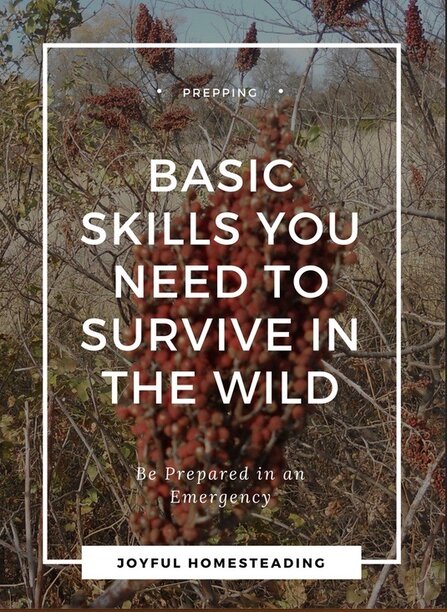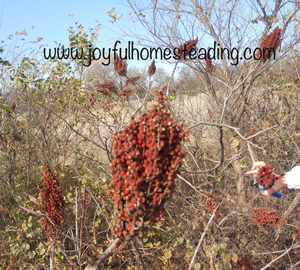Basic Outdoor Survival Skills
Some basic outdoor survival skills are a plus at any time, and especially during the uncertain days we live in. You never know when you'll be stranded somewhere with no access to a grocery store or even a convenience store.

Knowing how to find good quality food in the wild, and especially drinkable water is crucial.
So how are basic outdoor survival skills possible? According to Bradford Angier, author of the book, How to Eat in the Woods, it's a matter of looking at everything as a source of food and learning not to be too picky or squeamish.

Nobody wants to eat bugs, for example, but in a pinch they could be added to a soup for protein. But Angier emphasizes that the most crucial thing to locate first is drinkable water.
Clean, Drinkable Water
One of the most crucial of basic outdoor survival skills is the ability to find water. There's such a risk of dehydration, that Angier suggests not eating at all unless you can find water first. We need water to digest our food, and without it, food only causes more problems, not to mention making us more thirsty.
If the only source of water you find is from a stream or pond, you can clean it by making a simple filter.
Basic Outdoor Survival Skills Homemade Water Filter
If you have a plastic bottle, cut off the wide bottom part and poke a hole on each side near the cut bottom. You are going to be inverting the bottle so that the filtered water runs through the funnel. The plan is to hang the filter from a low-hanging branch and place a container under it to catch the filtered water.
In the neck of the bottle, place a piece of fabric or cotton. On top of that, place a layer of gravel, about two inches thick. Then fill the rest of the bottle with sand.
Collect some water and then pour it into the bottle, allowing it to filter through the sand, gravel and finally the cloth. Then run it through again. Although the water will look clean, it could still contain harmful bacteria so you will need to boil it to make it potable.
You can also use an empty can by poking a few small holes in the bottom of the can. Fill it the same way you would a water bottle.
Finding Food
Learning to forage is one of basic outdoor survival skills that will help you and your family survive any emergency. It's important to eat as much of a balanced meal as possible, even in the wild. You need the following:
- Carbohydrates coming from fruits, vegetables and whole grains
- Protein from fish, meat and poultry
- Fats from nuts, eggs and animal fats. You won't need much of these, but you do need them.
You also need vitamins and minerals which are usually available in a balanced diet. To prevent getting scurvy, you can get your daily dose of vitamin C by gathering fresh evergreen needles, placing them in boiling water and allowing them to steep for ten minutes. Sip it as you would any tea.
By the way, avoid eating any mushrooms in the wild. They have virtually no nutritional value and could be poisonous.
Finding Protein in the Wild
Angier suggests looking for owls. They're easier to catch than other birds, but even if you can't catch one to eat it, you might startle it away from its prey. If you can't bring yourself to eat a dead mouse, you could cut it up and use it for bait for fishing.
If you have a safety pin and some string, you have what you need to go fishing. Open the safety pin, attach the string to it, and impale a piece of meat on the pin. If there aren't any owls nearby, you can use either insects or fuzzy seeds. Worms also make good bait and can be found by digging into the earth.
If you are near a stream, you can find crayfish by turning over rocks - they can be found underneath. Cook them by dropping the crayfish into boiling water. Suck the lower portion of the crayfish out of its shell. Or you can use the crayfish for bait to catch bigger fish.
Frog Legs
My father used to catch frogs all the time when he was a boy, killing the frogs, cutting off the legs and taking them to my grandmother, who would cook them for dinner. They're considered a delicacy in some restaurants. If you plan on hunting frog legs for dinner, make sure you are hunting frogs and not toads which live on dry land and can be poisonous.







New! Comments
Have your say about what you just read! Leave me a comment in the box below.